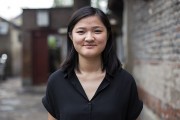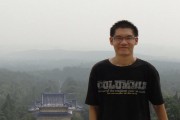If the twentieth century Anno Domini saw the emblematic rule of Captain America, the twenty-first is witnessing (depending on how you are informed) a rising or returning frequency to a global hum. Since opening up in 1978, the Chinese nation has embarked on a relentless charm offensive and, four years ago, it hit me.
Now four years is not a long time by most measures, but it was then that my self-concept and identity went through a paradigm shift and it was then that I “remembered” that I come from a long line of people that hailed from China.
I am a second-generation overseas-born Chinese, or “Huayi“. Like my father and late grandfather, we are part of the world’s largest diaspora. Stretched out over all four corners of the globe, overseas Chinese number over 40 million, a figure twice the entire population of Australia where I am based today.
My late grandfather, however, left China for Singapore by boat seventy years ago, taking an arduous journey on a junk boat from the “Tidal Prefecture” of Chaozhou to Singapore, where I was born. There, like many other Huayi in the metaphorical red dot that is Singapore, I was educated in a mission school for twelve years taught in the English language, which some argue to be a relic of British colonial hegemony.
Growing up, I was more comfortable watching MTV and British sitcoms, and yes, reading Captain America and Superman comics, than following the rituals of the Spring Festival. So perhaps it is no coincidence that where I am today expands on my grandfather’s original voyage, having moved an additional 6,000km away to Melbourne, where I now live and work twice removed and 9,000km away from the source where he was born.
As recent as three years ago, my “Chinese-ness”, the ethnic and cultural dimension to my identity, was just an afterthought I paid little heed to.
It wasn’t until late-2006 that the call of Chinese-ness resonated in me, when a Chinese wushu film – on the backs of others like it – heralded a new wave of 21st century Chinese public and peoples’ diplomacy, couched in the cultural capital of the longest continuing civilisation the world has ever seen. When this film emerged at the box office, it changed my lenses on how I saw the Chinese, and ultimately, how I saw myself.
Entitled “Fearless” for Western audiences, and “Huo Yuanjia” for the Chinese market, Jet Li’s reportedly final wushu film was the first significant catalyst that stirred something within me to check out China for myself. It made me question my mental mirror – why was I more comfortable speaking and thinking in English, the language of Singapore’s colonial masters?
The semantics of the two titles for different markets resonated both ways for an English-educated overseas-born Chinese like myself. To the English-speaking world, “Fearless” pronounced China’s rediscovered confidence in dealing with the world on its own terms. For the Chinese market, the name “Huo Yuanjia” was used to strike a historical and mythical reminder that even during what China deems as a century of humiliation there were pockets of Chinese who dared stand up against foreign oppressors.
But there was a catch; a film is a film, a snapshot, an edit and selection of representations and mediations. As a student of media, I reminded myself of how distorted the gap between true events and representation can be. Nevertheless, this film was a catalyst, prompting me to go on an exciting journey of rediscovering my roots.
As a result, I have visited Beijing, Guangzhou, Hangzhou, Shanghai, Shenzhen, Shantou, Suzhou, Xi’an and the Special Administrative Regions of Hong Kong and Macau. These visits have given me first-hand accounts of China, allowing me to now rely less and less on only media representations, including the movie “Fearless”, to inform my notions of the land of my forefathers, and my “Chinese-ness”.











